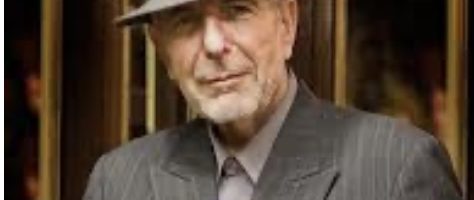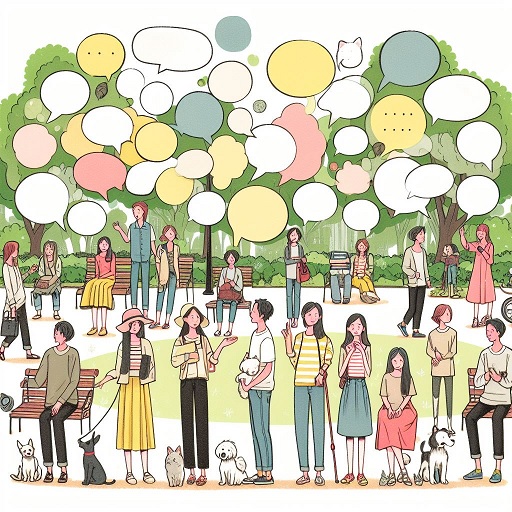My father joined the Army Air Corps in January, 1941, a full 11 months BEFORE Pearl Harbor. There was no separate Air Force at this time, it was still a division of the Army. He longed to be part of something bigger than himself. He had worked for the Chevrolet division of General Motors since 1937, but I think enjoyed the structure of the military. It was like being in a large family. Since he was the youngest of 8 children and his family had its fair share of dysfunction (his mother was bipolar and had been institutionalized since he was 12), this gave him that structure.
I have a letter from his oldest sister admonishing him; advising him to NOT join up. “What happens is we do not enter the war?,” she queries, “what then?” But he was on the older side, in fact, just under the age when he could join, so he disobeyed his de facto mother and enlisted. Since he was already a college grad, with useful management experience, he went to officer training school, was taught to be a navigator and wound up teaching that at Mather Field in Sacramento for the duration of the war. He truly loved his time in the service. He saved all his training manuals and stayed in touch with lots of Air Corps buddies for the rest of his life.
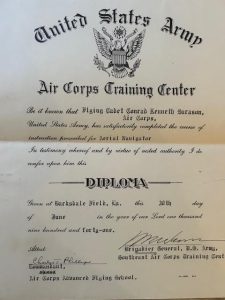
Diploma from Cadet School
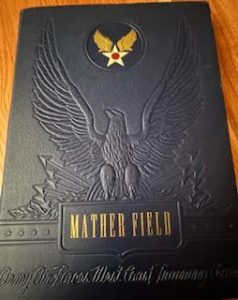
Mather Field 1943 yearbook
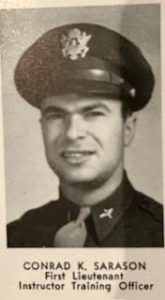
Dad’s yearbook photo
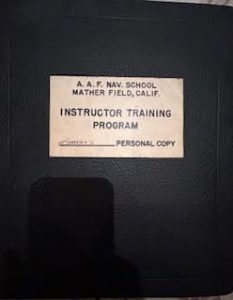
Instructor Training Manuel
His handwritten notes remain inside this bound book, yellowing but legible.
He carried a little wallet with him that included his ID card and a card with basic training instructions. As a former teacher, I can assure you, they are still valid methods.
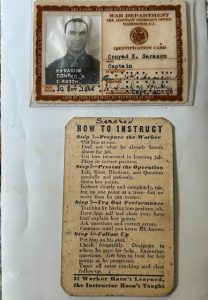
What he carried.
I’m sure he was an excellent teacher, as he was always patient with me. He would take me out in the backyard to look up at the stars, telling me how to figure out my position through the location of the constellations in the night sky. I no longer remember the details of the lessons, just the wonder of being out in the night with my father and how special that was.
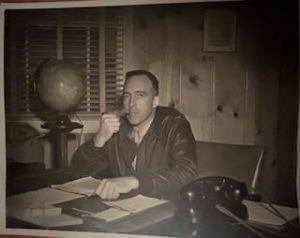
Col. John Egan
This professional portrait of his commanding officer was in the front of the yearbook. He stayed in touch with Col. Egan for the remainder of his life. Dad died on Jan. 3, 1990. When my brother and I went to his condominium in Laguna Hills, CA to clean it out and close his estate, we found his holiday card list on his desk. Col. Egan’s name and address were on it. I wrote to him to tell him of my father’s death and added him to my annual holiday card list. I heard back from him once. He said that my David looked a lot like Kenny (my father had been named Conrad, but his parents changed his name to Kenneth a few days later when his Grandfather Kahuth died. They just didn’t bother to officially change his birth certificate, so he became “C. Kenneth”, but was always called Ken). It made my heart leap to think that my 4 year old son resembled my father. May that boy be as good a man as my father was.
Dad died with his captain’s ring on his finger, though he was promoted to Major by the end of the war. I have all his official promotion documents, which are fantastic testaments to his skill and dedication.
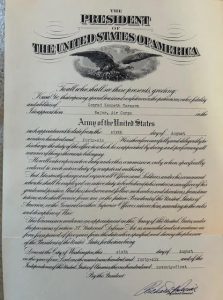
Promoted to Major in 1946


